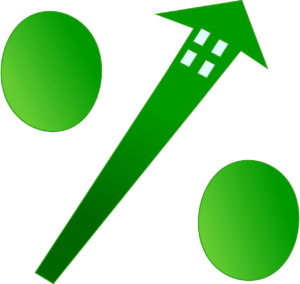Payday Loans are fixed-rate loans. A fixed rate loan means that the repayment rate always stays the same throughout your loan term. The benefit of a fixed-rate loan is that you can easily calculate how much you are required to pay in interest at the start of the loan, and this is unlikely to change each month.
Fixed or Variable Rate Loans?
There are two main types of loan rates;
Fixed
A fixed-rate loan is one where the interest rate locks at the beginning of the loan with no option to increase or decrease. This is a big advantage to those who like to plan their finances and know exactly what they will be paying. A fixed rate loan means that there will be no fluctuation in the amount you pay no matter what happens to the market.
Variable
A variable-rate loan is a loan where the interest rate can fluctuate during the repayment term, depending on a variety of factors. Borrowers who believe interest rates will decline tend to choose variable rate loans and on average, variable rate loans will have lower interest rates than their fixed counterparts. However, this is in part because there is a risk attached for consumers.
Rising interest rates could greatly increase the cost of borrowing, and consumers who choose variable rate loans should be aware of the potential for elevated loan costs.

Are Payday Loans Fixed or Variable?
Payday loans usually have a fixed rate. A payday loan is intended to be repaid in one lump sum payment when you get your next paycheck. Many payday lenders generally don’t even talk about interest charges in terms of a rate but rather as a fixed flat fee since they are intended to be paid off in one payment.
One advantage of payday loans being a fixed-rate loan is that you’ll always know exactly how much interest you need to pay and what it will cost you, no matter what happens in the market.
Fixed or Variable Rate: which is better?
There are advantages and disadvantages to both fixed and variable rate interest rates.
One big advantage of having a fixed rate is that you will always know exactly what you are paying, with no surprises. This makes financial planning easier and can give you peace of mind. For anyone who values predictability in their finances or can’t afford the risk of a variable rate loan, a fixed rate loan is the right choice.
However, if you have a variable interest rate loan, there is the possibility of saving money. For a long-term loan, it’s possible that the interest rates will drop over the term of your loan. This means that during the time you’re paying off the loan your interest rates could decrease, saving you money.
There’s also the distinct possibility that the interest rates could rise, meaning borrowing is far more expensive than you originally thought. For those willing to take the risk, variable rate interest loans are a potentially good choice.
Examples of Fixed Rate Loans
Payday loans – Payday loans are offered as a fixed rate interest loan. This means you’ll always know exactly how much interest you need to pay and what it will cost you, no matter what happens in the market.
Personal Loans – fixed rate personal loans are generally a good option for those who favor predictable payments through the long term. Fixed-rate loans can also help secure an affordable long term payment on a 7 or 10 year loan.
Examples of Variable Rate Loans
Variable-rate mortgages – variable or adjustable-rate mortgages lock in your initial starting rate for a period of time, then implement a variable rate.
Some loans can be both variable and fixed-rate, depending on your preferences and lender.
Student Loans – whether your student loan is a fixed or variable rate will depend on your lender. Generally, a good choice for a student loan is a fixed interest rate student loan, because you have the certainty of knowing exactly how much you owe and how long it will take to pay you off.
Mortgages – mortgages can be both fixed-rate and variable or adjustable-rate, depending on your personal preference. There are widely available options for both. The one you choose can depend on what you can afford and the level of risk you’re willing to take.